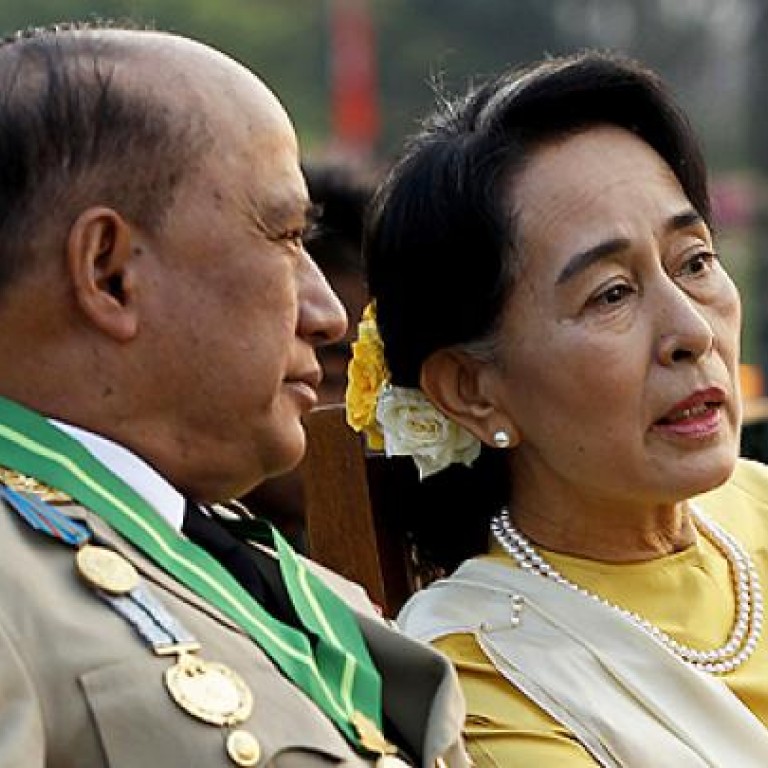
Suu Kyi makes symbolic debut at Myanmar army parade
Myanmar opposition leader Aung San Suu Kyi on Wednesday made a symbol-laden appearance at an annual military parade for the first time, underscoring the country’s startling transformation.
Myanmar opposition leader Aung San Suu Kyi on Wednesday made a symbol-laden appearance at an annual military parade for the first time, underscoring the country’s startling transformation.
Her attendance at the Armed Forces Day parade in the capital Naypyidaw came as the military reaffirmed its role in national politics, two years after the generals ceded power to a reformist government.
The show of strength comes as the government of President Thein Sein – a former general – grapples with spreading Buddhist-Muslim violence that has left 40 people dead in the past week.
Speaking to about 6,000 personnel, army chief Min Aung Hlaing said the military performs a “role in the national politics in accordance with the people’s desire when the nation faces ethnic conflicts or political struggles”.

He surveyed the soldiers – whose numbers were fewer than in previous years – from a military jeep, while tanks rolled through the parade ground in the regime’s purpose-built capital.
Suu Kyi’s relationship with the army has come under scrutiny as she prepares for elections in 2015, and her presence at the parade will be seen as a sign of warming ties with generals who once kept her under house arrest.
Her father Aung San, the country’s independence hero, created the army and led the struggle against British colonial rule. The army chief referenced him several times in his speech to troops.
In January Suu Kyi admitted she remained “fond” of the army, despite a litany of allegations it has committed rights abuses in Myanmar’s ethnic conflicts, including rape and torture in the northern state of Kachin.

